Christmas is a widely celebrated holiday commemorating the birth of Jesus Christ, with gifts and goodwill exchanged among Christians. However, not all religions observe Christmas, even those that respect Jesus as a prophet or teacher. Some religions choose not to celebrate Christmas due to differing views of Jesus Christ, following different calendars, or considering the holiday’s origins to be pagan. Let’s delve into some examples and their reasons for abstaining from Christmas.
Here we’ll explore religions that don’t celebrate Christmas and their reasons.
10. Hinduism
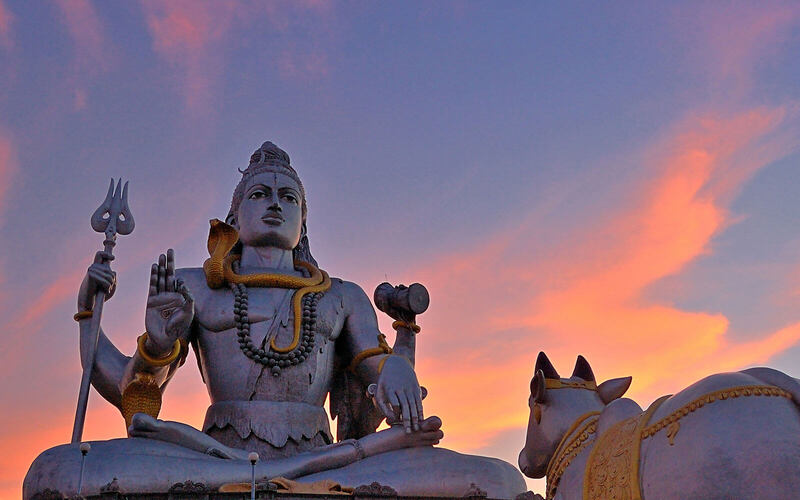
Hinduism, the world’s oldest religion, dates back over 4,000 years, and boasts over 1.2 billion followers, making it the third-largest religion. Hindus believe in Brahman, a supreme being, who takes various forms as gods and goddesses, and adhere to the concepts of reincarnation, karma, and dharma (the moral law).
Hindus do not celebrate Christmas as it is not part of their religious tradition.
Hinduism lacks a single founder or sacred scripture, encompassing a collection of diverse texts and teachings varying by region and sect.
Throughout the year, Hindus have their own festivals and celebrations, including Diwali (festival of lights), Holi (festival of colors), and Navratri (festival of nine nights).
While Hindus may hold Jesus in high regard as a great teacher or saint, they do not worship him as God.
9. Sikhism
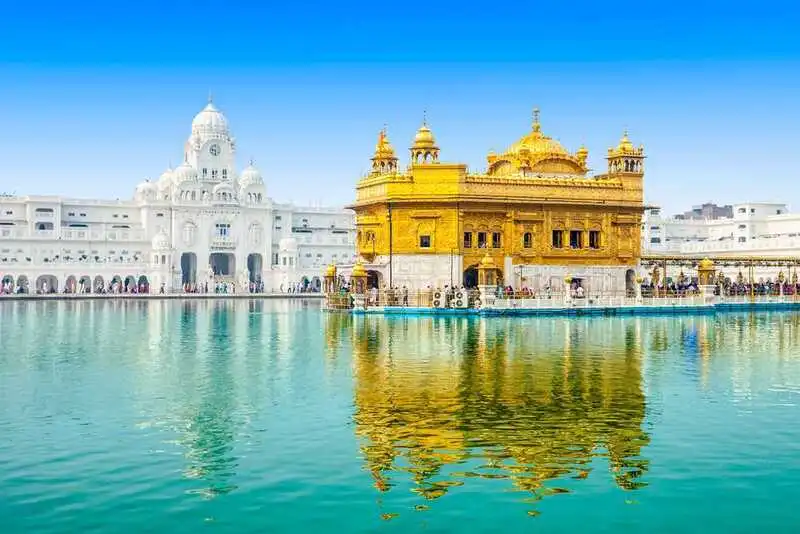
Sikhism, a monotheistic religion that emerged in the 15th century in the Punjab region of India, boasts approximately 30 million followers worldwide, mainly in India and Pakistan. Sikhs believe in one God, known as Waheguru (the wonderful lord), and follow the teachings of ten human gurus who served as spiritual leaders and reformers. Guru Gobind Singh, the last guru, declared Guru Granth Sahib as the final and eternal scripture for all Sikhs.
Sikhs do not celebrate Christmas as it is not part of their religious calendar. Sikhism does not observe specific holidays or festivals related to the birth or death of individuals or deities.
8. Buddhism

Buddhism, one of the world’s largest religions, originated in India 2,500 years ago. With over 500 million followers, primarily in Asia, Buddhists adhere to the teachings of Siddhartha Gautama, known as the Buddha after achieving nirvana (liberation from suffering).
Central to Buddhism are the four noble truths (the reality of suffering, its cause, its cessation, and the path to end it) and the eightfold path (ethical and spiritual guidelines to attain nirvana).
Buddhists do not observe Christmas, as it is not part of their religious doctrine. Buddhism does not involve a concept of God or a creator; instead, it emphasizes individual enlightenment. Customarily flexible in rituals and ceremonies, Buddhism adapts to various cultures and traditions.
7. Jainism
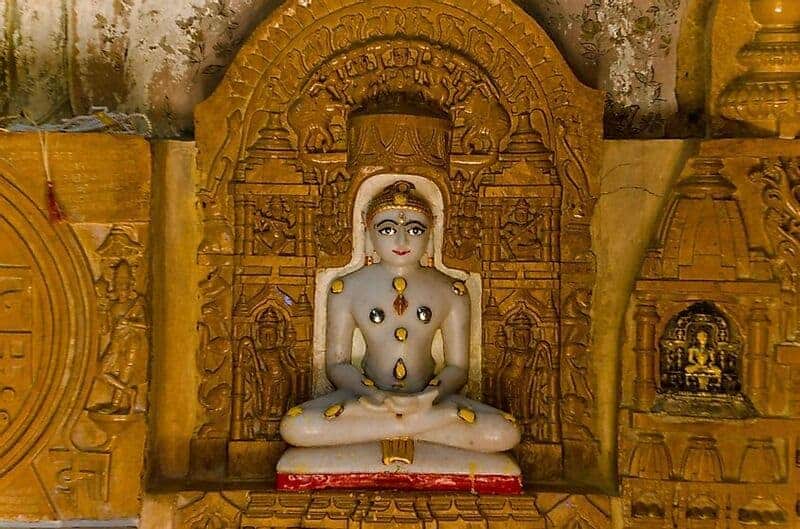
Jainism, an ancient religion originating in India around the 6th century BCE, has approximately 4 million followers worldwide, predominantly in India. Key Jain beliefs include ahimsa (non-violence), anekantavada (multiple perspectives), and aparigraha (non-attachment). Jains also adhere to concepts of reincarnation, karma, and moksha (liberation from the cycle of birth and death). They follow the teachings of 24 tirthankaras (enlightened beings) who showed the path to moksha, with the last one being Mahavira in the 6th century BCE.
Jains do not celebrate Christmas, as it is not part of their religious history or culture. Jainism lacks a single founder or sacred scripture, instead having a collection of oral and written texts that vary by sect and region. Jains celebrate their own festivals such as Mahavir Jayanti (birth anniversary of Mahavira), Paryushana (annual period of fasting and repentance), and Diwali (festival of lights, marking Mahavira’s nirvana).
6. Christian faiths such as Quakers, Jehovah’s Witnesses, and Churches of Christ
There are also some Christian denominations that do not celebrate Christmas, either because they reject its pagan origins or because they consider it a distraction from the true message of the gospel. Some of these Christian faiths are:
Quakers
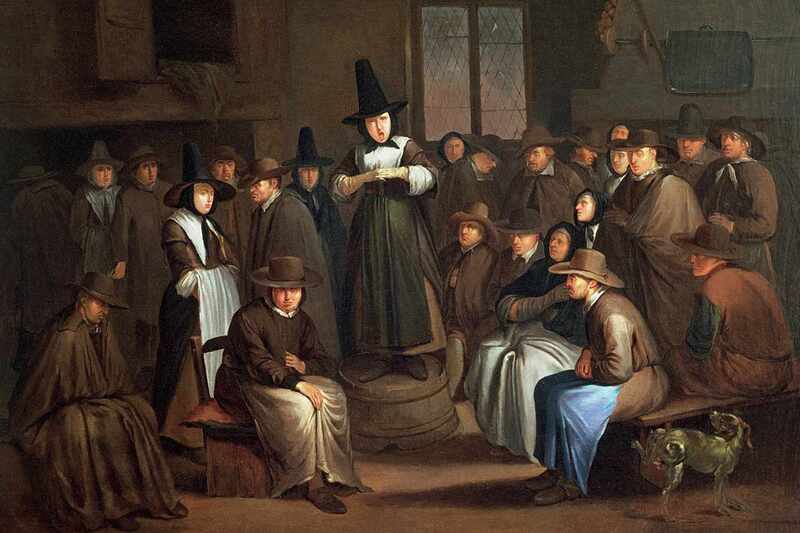
Quakers, also known as the Religious Society of Friends, are a Christian movement that emerged in England in the 17th century. Quakers believe in the inner light, the direct and personal experience of God in every person. Quakers do not have a clergy, a creed, or a liturgy, but rather worship in silence and listen to the promptings of the spirit. Quakers do not celebrate Christmas because they believe that every day is equally holy and that Christ’s birth should be celebrated all year round.
Jehovah’s Witnesses

Jehovah’s Witnesses are a Christian sect that originated in the United States in the late 19th century. Jehovah’s Witnesses believe that Jehovah is the only true God and that Jesus is his son and the king of God’s kingdom. Jehovah’s Witnesses also believe that the Bible is the inspired word of God and that only 144,000 faithful Christians will go to heaven, while the rest will live on a restored earth. Jehovah’s Witnesses do not celebrate Christmas because they believe that it is based on false religious beliefs or activities that have pagan roots. They also believe that Jesus was not born on December 25th and that the holiday has become too commercialized and has lost its true meaning.
Churches of Christ

Churches of Christ are a Christian group that emerged from the Restoration Movement in the United States in the early 19th century. Churches of Christ believe that the Bible is the sole authority for faith and practice and that each congregation is autonomous and independent. Churches of Christ do not celebrate Christmas because they believe that there is no biblical command or example to do so. They also believe that celebrating Christ’s birth is not essential for salvation and that it may lead to idolatry or worldliness.
5. Judaism
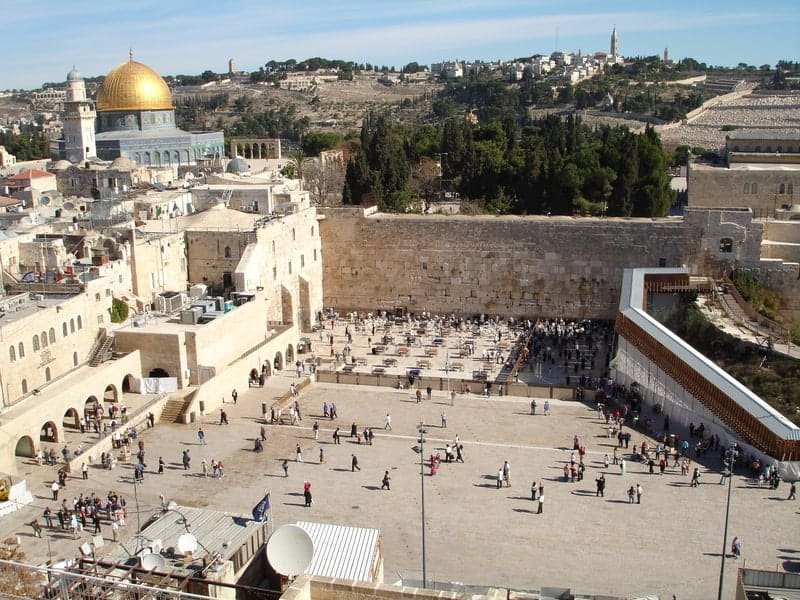
Judaism, one of the oldest monotheistic religions, dates back approximately 4,000 years. With about 14 million followers, mainly in Israel and the United States, Jews worship one God known as Yahweh or Adonai (the lord). Their beliefs center around the Torah, which includes the first five books of the Hebrew Bible, also known as the Old Testament. Jews follow the commandments and traditions given by God to Moses and the prophets.
Jews do not celebrate Christmas, as it is not part of their religious calendar or belief system. Judaism does not recognize Jesus as the Messiah or the son of God but views him as a Jewish teacher executed by the Romans.
4. Wicca
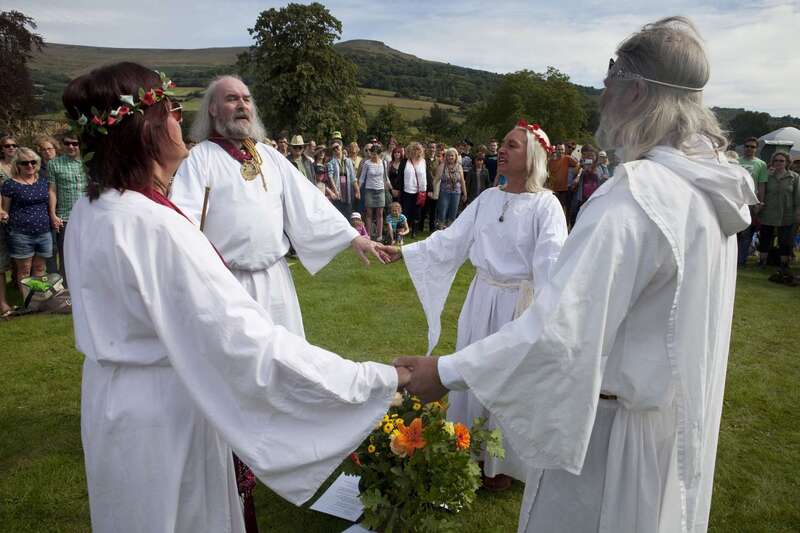
Wicca, a modern pagan religion, incorporates elements from ancient Celtic and Germanic traditions. With around 1 million followers worldwide, primarily in North America and Europe, Wiccans believe in a dual deity comprising a goddess and a god, often represented by the moon and the sun. Their beliefs encompass magic, nature, and reincarnation, guided by an ethical code known as the Wiccan Rede: “An it harm none, do what ye will.”
Wiccans do not celebrate Christmas, as it is not part of their religious cycle or cosmology. Wicca lacks a fixed doctrine or scripture, instead embracing a variety of practices and beliefs that vary by tradition and individual.
Wiccans have their own festivals and celebrations, including Samhain (end of summer), Yule (winter solstice), Imbolc (beginning of spring), Ostara (spring equinox), Beltane (peak of spring), Litha (summer solstice), Lughnasadh (first harvest), and Mabon (autumn equinox).
3. Shinto
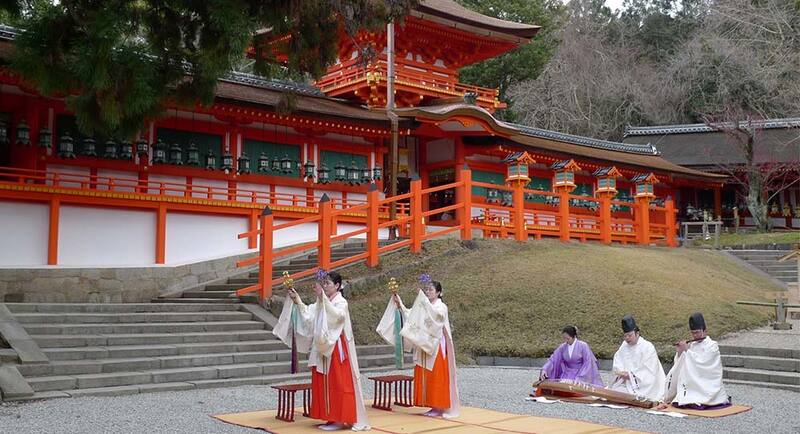
Shinto is the indigenous religion of Japan, which worships various gods or spirits called kami. Shinto does not have a founder, a sacred scripture, or a fixed set of doctrines. It is more of a way of life that respects nature, ancestors, and traditions. Shinto does not celebrate Christmas because it is not part of its religious calendar, and because it is seen as a foreign influence from Christianity. Shinto does have some festivals throughout the year, such as the New Year, the Cherry Blossom Festival, and the Harvest Festival.
2. Zoroastrianism
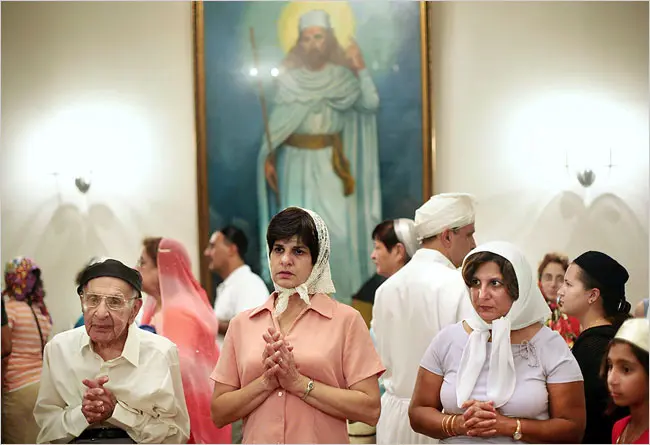
Zoroastrianism is one of the oldest monotheistic religions in the world, originating in ancient Persia. It is based on the teachings of Zoroaster, who preached about the existence of one supreme God, Ahura Mazda, and the cosmic struggle between good and evil. Zoroastrianism does not celebrate Christmas because it follows a different calendar, called the Zoroastrian calendar, which has its own festivals and holy days. Some of the major Zoroastrian festivals are Nowruz (the New Year), Gahambar (the seasonal thanksgiving), and Mehregan (the autumn festival).
1. Islam

Islam is the second-largest religion in the world, with over 1.8 billion followers. It is based on the teachings of Prophet Muhammad, who received revelations from God through the angel Gabriel. Muslims believe in one God, Allah, and follow the five pillars of Islam: faith, prayer, charity, fasting, and pilgrimage. Islam does not celebrate Christmas because it does not recognize Jesus as the son of God, but as one of the prophets. Muslims also follow a different calendar, called the Islamic calendar, which is based on lunar cycles. The most important Islamic festivals are Eid al-Fitr (the feast of breaking the fast after Ramadan) and Eid al-Adha (the feast of sacrifice after Hajj).

